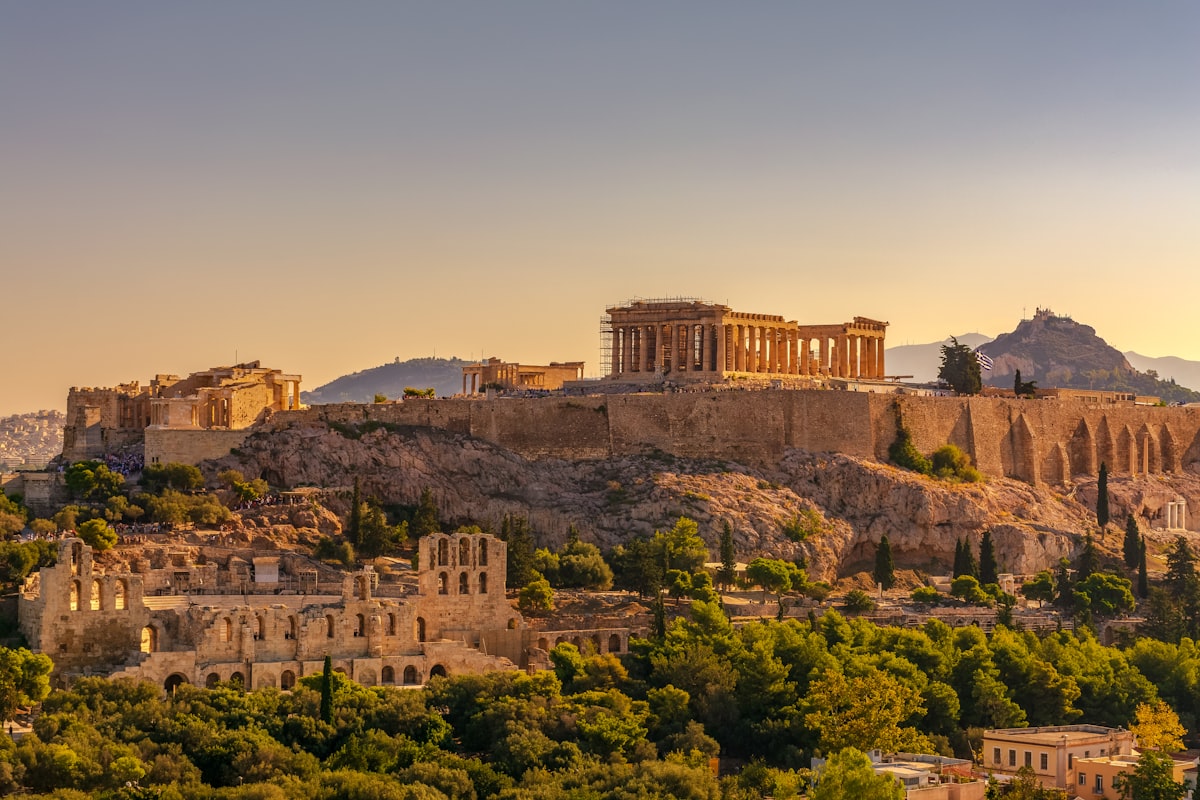Why determinism isn't true and human freedom is real (Part 2)
Free will isn't what you should be worried about

Does physics prove free will doesn't exist?
This post follows up from part 1. Go read that first if you want this to make any sense.
In the first part of this article, I said "nope".
The arguments that know-it-all physicists give against free will don't pass the smell test. Reality doesn't work the way they describe it, no matter how well their mathematical equations work under highly artificial situations.
The physicists arguing against freedom because of determinism haven't understood that they're living in abstractions.
But reality is concrete and particular. No abstract model can capture that. With anything interesting, like economic behavior, or the activity of brains, or even Newton's equations for more than three interacting bodies, the details quickly overwhelm the mathematical simplifications.
But arrogant physicists, who genuinely believe that understanding how particles move will explain stock prices and works of art, refuse to see that they're in love with illusions.
And that goes for their understanding of "free will" too.
What is free will anyway?
Let's take a short detour back to the beginning.
Plato thought of freedom as a kind of self-mastery. The free person has an inner life organized by the principles of justice. To be free is to organize one's own soul to live willingly by the law of reason, which rules over the passions.
Plato didn't have much to say about freedom as decision-making, like we think of freedom today. That shows up in Aristotle's writings.
Like Plato, Aristotle also thought that a well-lived life required an inner life organized around justice. Our individual choices contribute to our character, but those choices also follow from our nature and our circumstances.
If the options are freedom or determinism, Aristotle said "both".
Consistently good choices lead to good character, and good character is (of course) consistency in good choices.
Aristotle wasn't too bothered by the conflict between character and choice. He wasn't carrying around all the baggage of Christian theology and 300 years of modern post-Christian thinking.
The ancients thought of freedom more as a political and intellectual problem. Freedom has to do with your prospects in the life of the city. Do you have a voice? Are you well-regarded? Can you act within the public life of your fellow citizens?
Medieval philosophers, acting within a Christian worldview, laid the groundwork for today's understanding of freedom. They saw the soul (or mind) as divided into a power of intellect and a power of willing. There were major debates about whether freedom was a power of intellect or a power of will.
Overall, they didn't see freedom as a totally free will. Freedom has much more to do with recognizing the right thing to do and then being free to do it. The fact that we have a body, with desires, and that we are influenced by external forces is no obstacle to this freedom.
But fast-forward to today and you'll find many a skeptic of "free will" arguing that freedom is a total freedom to make choices no matter what else happens in nature or in our minds and bodies.
That's a huge shift.
What's going on here?
Today's critics of "free will" tend to see it as an abstract concept
Not unlike the way they see the material world. It's all a non-tangible math problem. That's no coincidence.
Free will, the skeptic says, is about what you could have done. You could have picked an alternate choice and done other than you did.
But that doesn't make any sense.
When we talk about freedom, we aren't looking back at things that already happened.
I'm sitting here feeling hungry, and I say, "I'm going to go grab lunch", and then I go to the kitchen and make a sammich.
"But you had no choice in that!" says the critic.
At this point I don't even know what you mean. I wanted a sammich, I decided to get a sammich, now I'm eating my sammich.
What was un-free about that? What else do you want?
Sure, you can give all the lovely mathematical descriptions of the physical quantities of the particles in my body. You can tell a beautiful story about neurological mechanisms in my brain and nervous system.
Those scientific explanations are explaining what I did from the perspective of a neutral observer.
But what I did happened when I made a decision and then acted on it.
My action happened because I had a reason and then acted on that reason.
The problem here isn't with freedom. The free-will skeptic expects that we must explain freedom with a miraculous suspension of physical laws. They have no other way to account for freedom. It's either full-blown magic, or else your actions are totally determined by the behavior of the particles of your body.
But who ever explained it that way besides the skeptic?
Few serious thinkers have ever thought freedom was like this.
Where did this expectation come from, anyway?
A relentless focus on the free choice
If you look into the history of free will as a concept, there's a handful of places where the idea of total freedom turns up.
As we've seen, the ancient Greeks and Romans overall didn't think too much about this problem. There's an interesting reason for this which I'll come back to in a moment.
You don't start to see "free will" enter the scene until the Christian writers of late antiquity and the medieval age. But even there the idea of a magical power to suspend the laws of nature doesn't really come about until the modern era.
Descartes, as you may know, separated the mind from the material world. To have a mind is to think, and to think is no power found in the physical universe. That's one source of today's free-will problem.
Another person to look at is Immanuel Kant. If Descartes first took the mind out of matter, Kant transformed the "I" into a being with one foot in nature and the other in the world of pure rationality.
A human person is divided between their empirical body, subject to the laws of nature, and their rational self, which is subject only to the laws of reason.
Now that's powerful, if you can make it work. It means that freedom exists, but you won't find it by looking at "stuff" out there in nature.
But Kant didn't convince everyone. In fact, he opened the door to a whole lot mess of problems. Nature and freedom both seem necessary, both are entirely justified by argument, but if one is real, the other can't be.
Talk about a problem to have.
Reality itself is deeply conflicted.
And there's something else to notice.
Freedom is the power of a rational intellect to make choices.
Self-mastery and public life are totally gone. To be free is to choose, and then to act on the choice, no matter what physical causes are involved.
That's a long way from where we started.
Free will is a mistake, but...
What this means is that "free will", in all its glorious mock-quotes, probably is a philosophical mistake.
But it's not for the reasons that the materialists give.
Giving up on absolute freedom of the will doesn't mean that the only alternative is simple-minded determinism.
If you expected that you could break all the rules of causality by thinking real hard, well, don't hold your breath.
But this isn't the same thing as saying that your sense of being a free person is nothing but an illusion.
That never made any sense anyway. If your feeling of being a self is an illusion, then who is fooled?
How do you explain the condition of living in an illusion, when an illusion supposes a distinction between how things appear and how things are?
If you want to say "free will is an illusion", you've only created harder questions for yourself.
Not only does the free-will skeptic demand an unreasonable account of freedom, they're also inconsistent in explaining it away.
They have to suppose a free self in order to wish it into the cornfield.
Fortunately, there are other ways to understand freedom.
Freedom in a material universe?
The question of whether we can be totally, absolutely free of any outside causes is a non-starter.
Even if you could, what would be left of you? Your identity isn't just your choices made in isolation. You've got a body, a history, people you care about, a language you speak, and on and on.
Iris Murdoch once wrote that modern theories of freedom stress the discontinuity between a person and the world. You are only free if you are maximally independent from things around you.
But there is another tradition of thought which stresses the continuity of the self and the world. A person is free in respect of participation in the world.
Which brings us in a roundabout way back to the freedom of the ancient Greeks.
The freedom of the ancient world is a political freedom. A man is free when he lives without tyrants and unruly mobs, whether taken literally or as a metaphor for the passions threatening his inner reason.
They didn't care too much about whether a person was free in an absolute sense. The question of whether their desires or acts where determined didn't bother them. Why should it? Why would you worry about where your desires and motives come from?
Closer to our own time, Romantic writers of the late 18th & 19th centuries tried to get us a piece of this action.
They understood that our nature as living organisms was an important part of being alive. But so is freedom.
Our blessing, and our curse, as human beings is that we are divided between our living animal bodies and our freedom as persons. Neither side entirely rules us.
You are free when you can determine you own purposes, from your position in your own life, and freely pursue them.
Freedom is not total and absolute. It depends on your ability to see the world around you. It develops out of your body and your external circumstances. It has a political dimension.
What else do you want?
You aren't un-free because some physicists are in love with their own equations. Freedom is as real as anything can be.
PS – If you enjoy these posts, why not subscribe? That way you can receive them directly in your inbox... and you'll get the members-only posts.
As a bonus perk, members can be a part of the private rogue planet community, where you can discuss this article and hang out with other SFF Heretics. It's not another privacy-thieving jumble of a Facebook group, either.
There's no charge (yet) to subscribe as a free member, so click here and join now.

